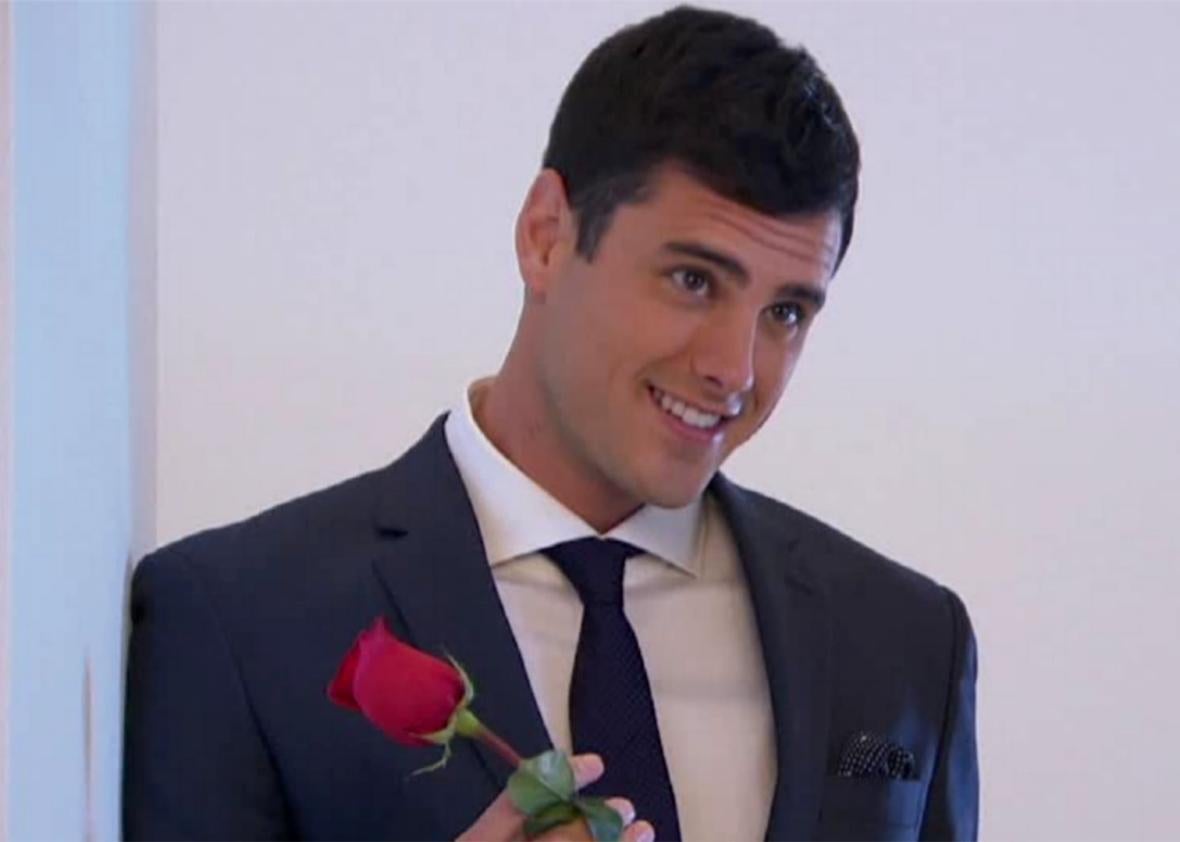Ben Higgins, the 20th Bachelor, may not be a terribly interesting man, but he is a man of many interests. He loves kids, the Chicago Cubs, and his hometown of Warsaw, Indiana. And although you would never know it if you consume The Bachelor only through the show itself, he seems to be an evangelical Christian.
Higgins’ faith is obvious to anyone who follows the wider universe of online Bachelor-alia. His blog includes lines like “I had to trust in God and that he would guide me in the right direction.” His Twitter bio (“sweetly broken, wholly surrendered”) is a lyric from a Christian worship song, and his Instagram quotes Christian author Donald Miller. He has a tattoo that reads “Commit to the Lord whatever you do and your plans will succeed—Proverbs 16:3,” for Pete’s sake. “I know Ben has a heart for Jesus,” Sean Lowe, known a few seasons ago as “the virgin Bachelor,” wrote on his own blog as the season kicked off. “Now, he’s going to have a big stage to share that love for the Lord with the world.”
That stage has turned out to be off screen. On the show itself, spirituality gets only the most fleeting, veiled references and dog whistles. On last night’s episode, Lauren’s sister mentioned her “good values,” JoJo’s brother told her to “keep her heart guarded,” and Caila’s dad mentioned that he was praying for her. As for Ben, the one sign of his possible evangelicalism was the massive church that made a brief cameo in last week’s episode: “This is my church,” Ben told Lauren as he gave her a tour of Warsaw. “Aww,” she responded. “Ben, this is a big church.” “It is a big church,” he agreed, and drove on.
Higgins told Us Weekly recently that he wants “a woman [who has] a similar faith as I do.” In the Bachelor universe, however, the qualities that qualify a partner for marriage are much vaguer: things like willingness to open up, to be vulnerable, to be authentic.
There have been a few exceptions to this glossing over of contestants’ religious backgrounds. Methodist Jake Pavelka asked the women about their views on premarital sex on the first night they all met. Lowe’s faith became one of his defining characteristics, but apparently only because it affected his restrained approach to the “fantasy suite,” where each of the last three finalists spend the night alone with the Bachelor or Bachelorette. (Lowe went on to become the only Bachelor to marry the woman he picked at the final rose ceremony.)
Of course, religion is not the only trait that producers blur out in pursuit of generic relatability. Viewers rarely know much more about contestants’ careers and passions beyond quirky chyronic descriptors like “chicken enthusiast” or “twin.” But religion is about far more than a person’s approach to sex. (Ben, too, has said he “set boundaries” for the fantasy suite, based on his faith.) It deserves better than the cutting-room floor because it intersects with values, culture, and intellectual and social interests—all things a person might hope to share with a spouse. Presumably Ben and his final three women have talked about this stuff by now. What could be more “authentic” than letting viewers in on the conversation?
